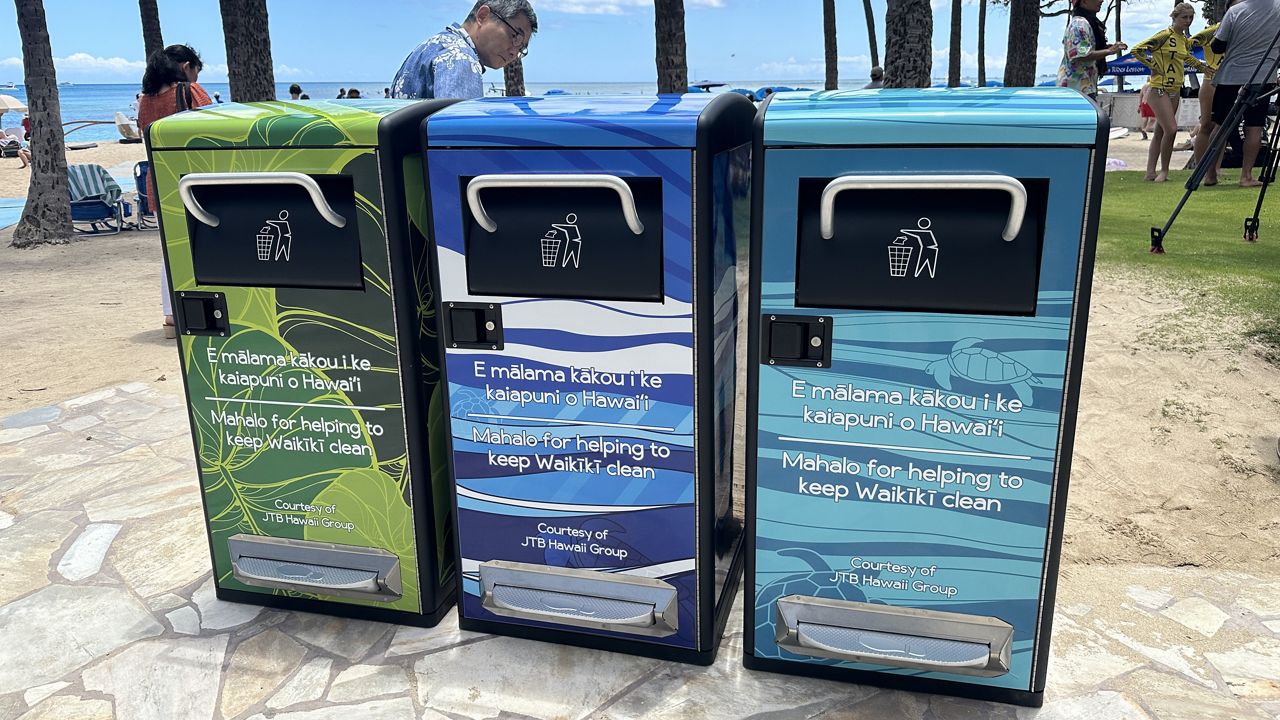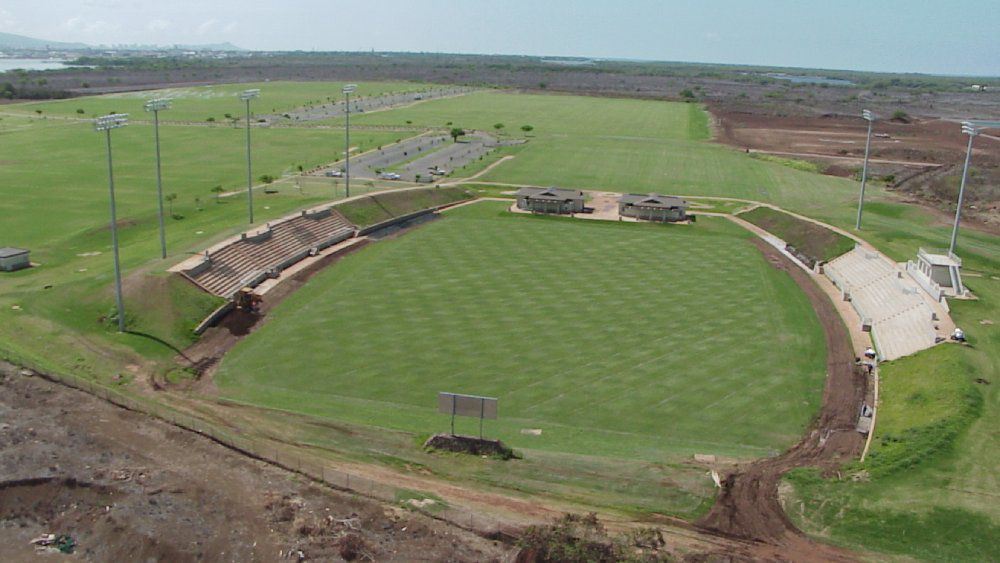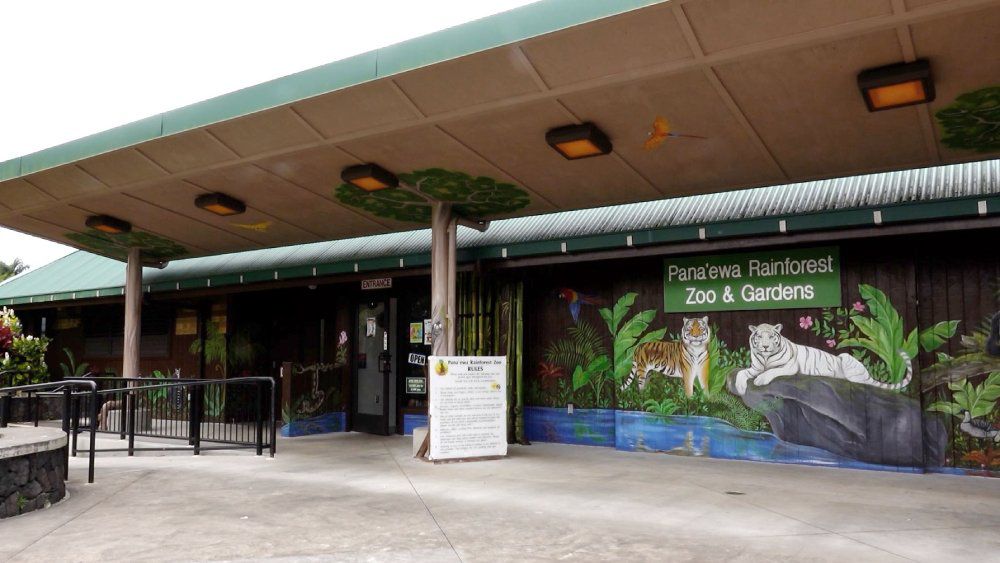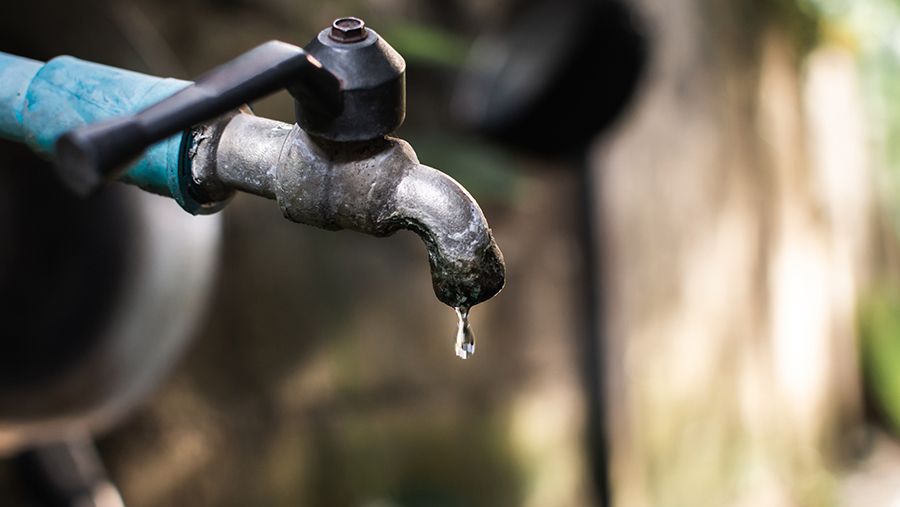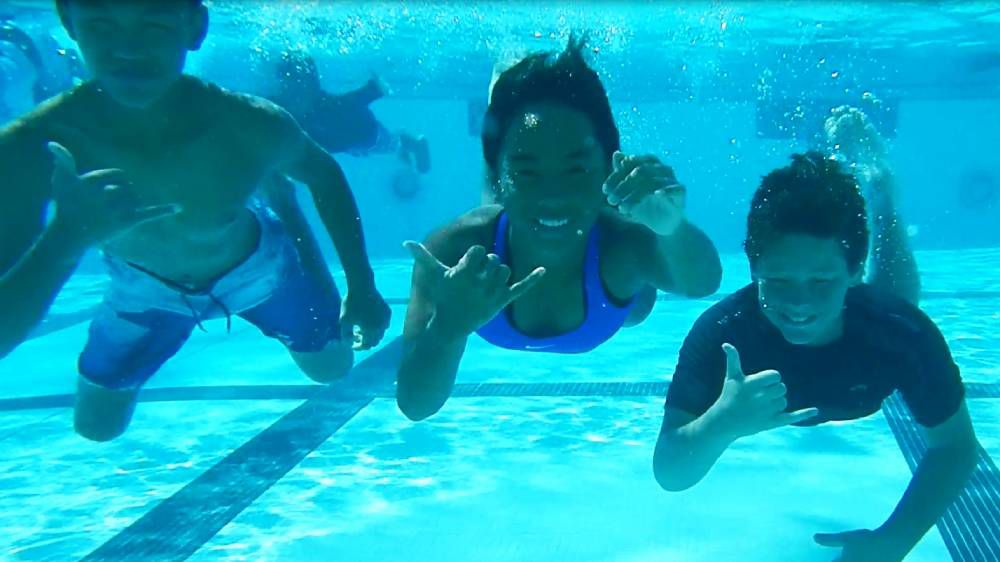HONOLULU — On Monday, Honolulu Mayor Rick Blangiardi and partner agencies unveiled the first of 26 trash cans that will be installed along Kuhio Beach Park in Waikiki.
JTB Hawaii Group donated the decorative trash cans. Crews will place the first one near the Duke Kahanamoku Statue in Waikiki.
During the unveiling ceremony, Blangiardi emphasized the importance of public-private partnerships.
“These trash cans are a very good reminder of the collaborative effort needed to help ensure safer and cleaner streets for the thousands of visitors who arrive on our shores each year,” said Blangiardi.
The Honolulu City Council approved JTB Hawaii’s donation of the trash cans via Resolution 24-47 in February 2024. Twenty-six trash cans will be set up at Kuhio Beach Park, with four remaining as backups.
"JTB Hawaii Group is celebrating our 60th Anniversary since establishing our office in Hawai'i and managing our first tour group from Japan in 1964,” said Tetsuya (Ted) Kubo, President & CEO of JTB Hawaii, in a statement. “Over the years, millions of customers have enjoyed memorable experiences in Hawaii, with Waikiki being the focal point of all places. It makes perfect sense for us to show our gratitude by contributing back to the Waikiki community as a part of our 60th year celebration.”
Crews will complete the installation of the trash cans before JTB Hawaii’s annual clean-up day at Kuhio Beach Park and Kapiolani Park, which takes place on July 13.
“The new durable and immobile rubbish bins feature Hawaii-themed designs to blend with the environment, prevent trash from littering the beach and ocean, protecting the bins from people reaching in, and thus will aim to promote community cleanliness, safety, and environmental sustainability," said Kubo.
The American-made trash cans incorporate a vandal-resistant, drawer-opening design to keep the rubbish inside the containers. JTB Hawaii designed and printed the artwork surrounding the bins, which features island-inspired motifs meant to be visually appealing while blending in with the surrounding environment. The bins also include a message of mālama ‘āina or “respecting the land” to encourage tourists to keep the area clean.





